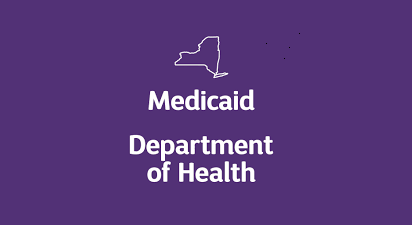Medicaid is a lifeline for millions of low-income individuals who need access to healthcare, especially seniors and disabled individuals. However, for many people whose income slightly exceeds the Medicaid income limits, getting disqualified from essential health coverage can be a devastating blow. Fortunately, New York State offers a solution through pooled income trusts, which allow individuals to qualify for Medicaid despite having excess income.
In 2024, understanding how Medicaid eligibility works—and how pooled income trusts can help bridge the gap—is crucial for those who need healthcare assistance but find themselves just over the income threshold.
Medicaid Income and Resource Limits for 2024: A Quick Overview
As of 2024, Medicaid income and resource limits have been updated to reflect the rising cost of living. To qualify for Medicaid in New York, applicants must meet the following financial criteria:
Monthly Income Limits:
Individuals
: $1,732 per month
Couples
: $2,351 per month
Resource Limits:
Individuals
: $31,175
Couples
: $42,312
These limits determine eligibility for Medicaid programs targeting seniors aged 65 and older, as well as disabled individuals who require healthcare support. Resources include savings accounts, investments, and other assets, but some items like primary residences and certain retirement accounts may be excluded from the calculation.
Exceeding Medicaid Income Limits? You Can Still Qualify With a Pooled Income Trust
If your income is higher than the Medicaid limit, you may think that Medicaid coverage is out of reach. However, New York offers a strategic option that allows seniors and disabled individuals to retain Medicaid coverage even when their income is too high. This option is known as the pooled income trust.
What Is a Pooled Income Trust?
A pooled income trust is a legal arrangement that enables individuals to qualify for Medicaid by diverting excess income into a special trust account. It is designed specifically for people with disabilities or seniors over the age of 65 who require Medicaid but do not meet the income eligibility criteria.
The trust is typically managed by a nonprofit organization that pools together funds from many participants, though each person’s contribution is kept separate for their individual needs. The trust ensures that any income above the Medicaid limit is no longer considered countable when determining Medicaid eligibility.
How Does a Pooled Income Trust Work?
Here’s how it works, step by step:
Excess Income Contribution: Let’s say your income exceeds Medicaid’s monthly limit of $1,732 for an individual. Instead of losing Medicaid coverage, you can place the excess amount into a pooled income trust. For example, if your monthly income is $2,000, you would deposit the $268 that exceeds the limit into the trust.
Trust Management: Once deposited, the nonprofit organization managing the pooled trust will oversee the funds and use them to pay for your approved personal expenses. These expenses can include housing costs (rent or mortgage), utility bills, groceries, and other living expenses not covered by Medicaid.
Maintaining Medicaid Eligibility: By transferring your excess income to the trust, Medicaid will no longer count it as part of your income, which means you meet the income eligibility criteria. This allows you to retain your Medicaid coverage for essential healthcare services while still having funds available for personal needs.
Example of Using a Pooled Income Trust
Imagine a senior with an income of $2,500 per month, which is well over the Medicaid limit of $1,732. By placing the $768 difference into a pooled income trust, this individual can continue to qualify for Medicaid. The funds in the trust can be used to pay for rent, utilities, and other essential expenses, ensuring that the individual maintains both healthcare coverage and financial stability.
What Can the Funds in a Pooled Income Trust Be Used For?
While Medicaid covers healthcare expenses, the funds in a pooled income trust can be used for a wide range of non-medical expenses, including:
Rent or mortgage payments
Utility bills (electricity, gas, water)
Groceries and household goods
Transportation costs
Personal care services
Clothing, furniture, and other essentials
These expenditures allow individuals to continue living comfortably while benefiting from Medicaid services.
Benefits of a Pooled Income Trust
Medicaid Eligibility
: A pooled income trust allows individuals with excess income to become or remain eligible for Medicaid, ensuring access to critical healthcare services.
Control Over Excess Income
: Instead of losing your excess income or using it solely on medical expenses, you can direct it toward necessary personal costs such as housing, utilities, and groceries.
Nonprofit Management
: A professional nonprofit organization handles the trust, ensuring your funds are managed responsibly. They do charge a small fee for administrative services, but the benefits far outweigh the costs.
Flexible Spending
: The pooled income trust allows for flexible spending on non-medical personal expenses, making it easier to manage your overall finances while keeping Medicaid coverage.
Who Qualifies for a Pooled Income Trust?
To be eligible for a pooled income trust, the individual must:
Be disabled, which includes seniors over the age of 65, who are considered disabled for Medicaid purposes.
Have income that exceeds Medicaid’s limits but still require Medicaid coverage.
How to Set Up a Pooled Income Trust
Setting up a pooled income trust involves working with a nonprofit organization that administers these accounts. Here’s the process:
Select a Nonprofit: There are several nonprofit organizations in New York that specialize in pooled income trusts. Choose one that aligns with your needs.
Submit the Necessary Paperwork: The nonprofit will guide you through the process of filling out the trust documents and submitting them to the appropriate Medicaid office.
Deposit Excess Income: Each month, you will deposit the portion of your income that exceeds the Medicaid limit into the trust.
Payment for Living Expenses: The nonprofit will use the trust funds to pay for your approved expenses, ensuring that your day-to-day needs are met.
Spend-Down Program: Another Medicaid Option for Excess Income
In addition to pooled income trusts, New York Medicaid also offers the spend-down program for individuals with excess income. This program allows individuals to qualify for Medicaid by spending the excess income on medical bills. However, unlike a pooled income trust, this option doesn’t allow you to retain funds for other personal needs, making it less flexible for many.
Final Thoughts: Pooled Income Trusts as a Pathway to Medicaid
Medicaid is an invaluable resource for seniors and disabled individuals in New York who need healthcare support but may find themselves over the income limits. In 2024, the income limit for Medicaid eligibility is $1,732 per month for individuals and $2,351 per month for couples, with corresponding resource limits of $31,175 for individuals and $42,312 for couples. If your income exceeds these limits, a pooled income trust provides a way to lower your countable income while still using your funds for personal expenses.
By placing excess income in a pooled income trust, you can maintain Medicaid eligibility, protect your financial stability, and continue to afford necessary living expenses. For individuals with excess income who need Medicaid, consulting a Medicaid expert or attorney can help you navigate the process of setting up a pooled income trust and securing your healthcare coverage.











